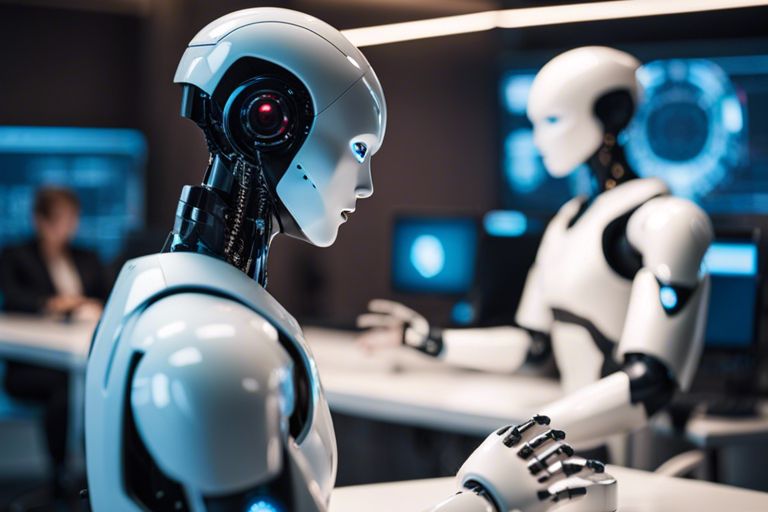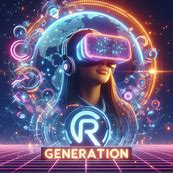With advancements in artificial intelligence (AI) shaping the landscape of various industries, it is crucial to explore the impact it will have on the future of the workforce, particularly for the younger generation. As AI technology continues to evolve and integrate into workplaces, it is evident that youth entering the workforce will need to adapt and acquire new skills to thrive in this rapidly changing environment. This blog post probes into the role AI is likely to play in shaping the future of youth in the workforce, discussing both the challenges and opportunities it presents.
The Evolution of AI-Driven Technologies
Historical Context of AI in the Workplace
Before stepping into the future of AI in the workforce, it is crucial to understand its historical context. AI has been a part of the workplace for decades, initially performing repetitive and mundane tasks to streamline processes and increase efficiency.
Projected Growth and Technological Advancements
AIDriven technologies are poised to revolutionize the future of work for young individuals. With the rapid advancements in AI, we can expect to see a significant increase in its integration across various industries, leading to higher productivity, improved decision-making, and new job opportunities.
AI’s Influence on Youth Employment
Skill Sets for the Future AI Economy
An imperative aspect of AI’s influence on the future of youth employment lies in the necessary skill sets for thriving in an AI-driven economy. Young workers need a strong foundation in critical thinking, creativity, adaptability, and a tech-savvy mindset to excel in roles that involve collaboration with AI systems.
Challenges and Opportunities for Young Workers
Any discussion on AI’s impact on youth employment must address the dual nature of challenges and opportunities. While AI may automate certain tasks, leading to concerns about job displacement, it also opens up opportunities for young workers to upskill, reskill, and pursue new career paths in emerging AI-related fields.
It is crucial for young workers to embrace lifelong learning and continuously update their skill sets to remain competitive in the evolving job market influenced by AI technologies. By staying versatile and adaptable, they can harness the potential opportunities that AI presents for their career growth and development.

Education and Training in the Age of AI
Adapting Educational Systems for AI Readiness
Many educational systems around the world are recognizing the need to adapt to the demands of the future workforce heavily influenced by AI. To ensure that young individuals are equipped with the necessary skills and knowledge for the AI-dominated workplace, educational institutions are incorporating courses focusing on AI, machine learning, data science, and other related fields in their curricula.
Vocational Training and Lifelong Learning Initiatives
Systems are being put in place to encourage vocational training and lifelong learning initiatives to help individuals stay relevant in a rapidly evolving job market shaped by AI technologies. Lifelong learning initiatives such as online courses, workshops, and skill development programs are becoming increasingly popular as they offer individuals the opportunity to upskill and reskill themselves to meet the demands of AI-driven industries.
With the rise of AI in the workforce, vocational training programs are being designed to cater to the specific skills needed in AI-related roles. These programs focus on hands-on training and practical experience in areas such as programming, data analysis, and AI application development to ensure that individuals are ready to take on AI-centric jobs.
Policy and Ethical Considerations
Government Policies Supporting Youth and AI Integration
Integration of AI in the workforce is rapidly increasing, and it is crucial for government policies to support the integration of youth into this evolving landscape. Policies should focus on providing educational opportunities for young people to learn about AI technologies, fostering partnerships between educational institutions and industries to bridge the skills gap, and ensuring that there are equal opportunities for all youth to access and benefit from AI advancements.
Ethical Implications of AI on Young Generations
Youth today are growing up in a world where AI technologies are becoming more prevalent, raising ethical considerations about how these tools impact their personal and professional development. It is important to consider the implications of AI on young generations, including issues related to data privacy, algorithmic bias, job displacement, and the need for ethical AI education in schools to empower youth to navigate these challenges responsibly.
Ethical: As AI continues to shape the future of work, it is imperative for policymakers, educators, and industry stakeholders to address the ethical implications of AI on young generations. By promoting transparency, accountability, and inclusivity in AI development and implementation, we can ensure that young people are equipped to harness the benefits of AI technology while safeguarding their rights and well-being.
Final Words
Considering all points discussed, it is clear that AI will continue to play a significant role in the future of youth in the workforce. As technology advances, it is imperative for young people to acquire the necessary skills to work alongside AI, rather than fear its influence. By embracing the opportunities that AI presents, youth can enhance their productivity, creativity, and problem-solving abilities. It will be crucial for educational institutions and businesses to adapt to this changing landscape to ensure that the youth are well-equipped for the jobs of the future. With the right approach, AI has the potential to empower the youth and drive innovation across various industries, shaping a more prosperous and efficient workforce for generations to come.





